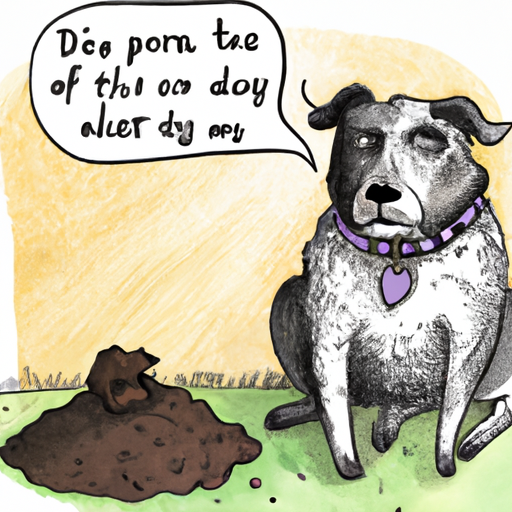Dirt eating habit in dogs, scientifically known as Pica, can be quite a perplexing and worrying behavior for dog owners. In this informative guide, we will take an in-depth look at the reasons why dogs eat dirt and how to handle this.
1. The Psychology Behind Dirt Eating
Sometimes, your dog’s dirt-eating habit may be more than just a dietary issue. It can be a psychological issue. Dogs, like humans, can develop certain obsessive-compulsive disorders.
- Boredom: Dogs are generally active and love to explore. When they don’t get enough stimulation, they may resort to eating dirt out of boredom. This is more common in younger dogs and puppies who have a lot of energy to expend.
- Anxiety: Dogs can also eat dirt when they are anxious or stressed. This can be a form of self-soothing for them, similar to how some people resort to comfort eating when they’re under pressure.
- Attention-Seeking: Sometimes, dogs may eat dirt to get your attention. If they notice that you react strongly every time they start digging or eating the dirt, they may continue to do so just to get a reaction out of you.
2. Health-Related Reasons
In some cases, your dog’s dirt eating habit may be due to underlying health issues.
- Nutrient Deficiencies: Dogs may eat dirt to compensate for a lack of certain nutrients in their diet. The dirt can contain small amounts of minerals that they might be missing.
- Upset Stomach: Dogs may eat dirt to soothe an upset stomach. The dirt can help absorb toxins or bacteria that might be causing discomfort.
- Parasites: Parasites can cause a change in your dog’s eating habits. If your dog has worms, they might be eating dirt in an attempt to fill their stomach.
| Possible Health Issue | Symptoms | Treatment |
|---|---|---|
| Nutrient Deficiencies | Weight loss, dull coat, loss of appetite | Balanced diet, supplements |
| Upset Stomach | Vomiting, diarrhea, lethargy | Proper hydration, bland diet |
| Parasites | Weight loss, visible worms in stool, increased appetite | Deworming medication |
3. Coping With Dirt Eating Behavior
If you’ve established that your dog’s dirt eating is not due to an underlying health issue, there are several strategies you can implement to discourage this behavior.
- Provide Mental and Physical Stimulation: Regular walks, play sessions and mental stimulation can keep your dog from getting bored and resorting to eating dirt.
- Consider a Dietary Change: Consult with your vet to ensure that your dog’s diet is balanced and fulfilling all their nutritional needs.
- Train Them: Use positive reinforcement techniques to train your dog not to eat dirt.
4. When to Consult a Vet
If your dog’s dirt eating habit is persistent, or if you notice any other worrying symptoms like diarrhea, vomiting, lack of appetite or weight loss, it might be time to consult a vet. They can run necessary tests to rule out any underlying health issues and can guide you on the best course of action.
5. FAQs
Q: Is eating dirt harmful to my dog?
A: It can be. Eating dirt can lead to ingestion of harmful bacteria or parasites. It can also cause gastrointestinal blockages.
Q: How can I stop my dog from eating dirt?
A: Provide them with plenty of mental and physical stimulation, ensure their diet is balanced, and consider training techniques.
Q: Can eating dirt be a sign of a serious health issue?
A: It can be. If your dog’s dirt eating habit is coupled with other worrying symptoms, it’s best to consult a vet.
Remember, as a caregiver, your primary role is to ensure the well-being of your fur-baby. Understanding the reasons behind their behaviors, including why they might be eating dirt, is an essential part of providing the best possible care.



